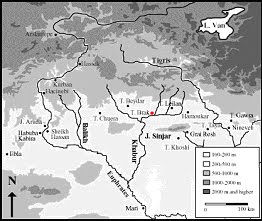Finished the second book on the list earlier this week. They Came to Baghdad (1951) is not a classic. It reminds me of an Enid Blyton book written for 'young gels'. It's difficult to relate to the protagonist, Victoria Jones, or Viccy as she is referred to by her pash, Edward. She's young, naughty, a bad shorthand-typist (I can relate to that), in 1930s terms, plucky and irreverent. But still of good stock since she's accepted wherever she goes in Iraq, including the British Consulate in Basrah. It's not a great read, but it is interesting from the perspective of my project. Ms Christie loved the Middle East and archeology and she must have relished writing the descriptions of Victoria's walking tour of Baghdad. It's one of the best parts of the book. After a strange kidnapping segment, our Viccy is rescued by an unlikely hero called Richard Baker. He's an archeologist and takes her to a Dig called Tell Aswad. I'm not sure if this is a real place, so will have to look it up on a map at some point. A small town called Mandali is nearby, if it isn't fiction.
Victoria finds the Dig to be a sanctuary from the undercover adventures she'd become involved with after making her way to Baghdad from London by devious means. Again, this description rings true and must reflect Ms Christie's own experiences while working with her husband, Max Mallowan. Written after WW2 and more than 10 years since she had spent those happy months in Syria and Iraq, I imagine that she would have been filled with nostalgia as she wrote those pages. Like Ms Christie, Victoria makes herself useful by developing photographs. I wonder who the book was written for, as she refers to Nazu pottery and the 'antika room'; terms which I don't know and would not expect the majority of readers to know either. Still, good fiction should educate too.
It's interesting to read the descriptions of Baghdad and Bashrah - places that were so different to the UK culture, but yet had their charms as described by Ms Christie. Now all we think about is war and violence. I would love to visit the places she refers to in the novel, but I would expect it is too dangerous just now.
Meanwhile, I've started Murder in Mesopotamia. This looks like a rich fund for my project as the story is set in an archeological dig. Hmmm.
An exploration of the life and works of Agatha Christie and her husband, Max Mallowan, from 1928 to 1945.
Monday, 31 May 2010
Friday, 28 May 2010
One book down
How I wish I was a woman of independent means. Unfortunately, I'm a wage slave and work became more intense in the last few weeks, so my project took a back seat. Finally, we've reached the end of proper teaching. Next week is exam week and then piles of marking. In my case, marking e-portfolios which will be something new, but the novelty will be short-lived. At least I have more energy to make progress with the project.
I do still read, although barely three pages in bed before my eyelids bang shut. I've finished Death Comes As The End. I'm still puzzling about the 'as' when I would expect the word to be 'at'. Some point of grammar that is well beyond my memory I suspect. I can see why I've never heard of the book before. It's not riveting. A moody protagonist who is not well drawn. I think it would make a good spoof movie. It's a shame that Ms Christie was not able to illustrate her love for Egypt and archeology more successfully. So, as far as research for the project, this book can be binned. Thankfully.
I do still read, although barely three pages in bed before my eyelids bang shut. I've finished Death Comes As The End. I'm still puzzling about the 'as' when I would expect the word to be 'at'. Some point of grammar that is well beyond my memory I suspect. I can see why I've never heard of the book before. It's not riveting. A moody protagonist who is not well drawn. I think it would make a good spoof movie. It's a shame that Ms Christie was not able to illustrate her love for Egypt and archeology more successfully. So, as far as research for the project, this book can be binned. Thankfully.
Subscribe to:
Comments (Atom)
